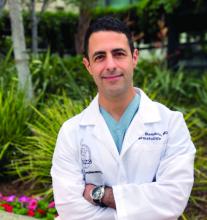There were .
“Enlightenment Now: The Case for Reason, Science, Humanism, and Progress,” by Steven Pinker, PhD (New York:Viking, 2018). Think life was better 50 years ago? 100? 500? Steven Pinker would say you’re wrong. Whether or not we feel it, empirically, life is better today than it ever has been. We are living longer, healthier lives, have better access to health care, have fewer war-related deaths and food shortages and higher levels of literacy and equal rights. However, Dr. Pinker acknowledges our shortcomings (e.g., providing a living wage) and potential societal pitfalls (e.g., increasing tribalism), although he could have addressed other crucial issues such as climate change more fully. If you’re looking for an optimistic, science-based outlook on humanity, look no further than this book.
“Aware: The Science and Practice of Presence – The Groundbreaking Meditation Practice,” by Daniel J. Siegel, MD (New York:TarcherPerigee, 2018). A clinical professor of psychiatry and director of the UCLA Mindful Awareness Research Center, Dr. Siegel, in his latest book, constructs a compelling argument for practicing presence that is supported by ample scientific evidence. His “Wheel of Awareness” is a tool to cultivate presence, self-awareness, and compassion. He deftly shows how developing “open awareness” and “kind intention” has not only psychological benefits, but also physical ones, such as improving immune function and increasing neural integration in the brain. As he writes, “The scientific findings are now in: Your mind can change the health of your body and slow aging.” That’s a message both we physicians and our patients could benefit from hearing more often.
“When: The Scientific Secrets of Perfect Timing,” by Daniel H. Pink (New York: Riverhead Books, 2018). In his latest book, Mr. Pink delves into timing, and the evolving science of timing, which draws from fields that include biology, psychology, neuroscience, and economics. Through extensive research (he analyzed over 700 studies) and fascinating real-life examples, the data are clear: We overwhelmingly perform optimally in the morning, suffer a mid-day slump, then rally once more in the evening (of course, there are productive night owls too). These peaks and dips affect both our moods and decision-making abilities, resulting in real-world impact (judges, for example, are more lenient in sentencing following a break). With practical takeaways you can immediately incorporate into your daily routine, you can start to feel more productive, energized, and happy, which is good news for both you and your patients.
“Natural Causes An Epidemic of Wellness, the Certainty of Dying, and Killing Ourselves to Live Longer,” by Barbara Ehrenreich, PhD (New York:Twelve, 2018). Infuriating, tender, disquieting, moving. Barbara Ehrenreich’s latest book is provocative. As a septuagenarian and cancer survivor who has forsworn most future medical measures, including Pap smears and cancer screenings (even though she has medical insurance), Dr. Ehrenreich castigates both the traditional medical and integrative holistic health establishments. Yes, she’s critical of us and nurses and fitness gurus and mindfulness coaches and Silicon Valley. Why should I read this you ask? Because it’s good to understand contrarian views, especially when they are thoughtfully articulated. Because there are many patients who share her beliefs, and understanding opposing perspectives might help us become better clinicians. Because she may cause you to be reflective. Do we order too many tests? Do we overprescribe meds? Are we setting up patients for false hopes of longevity? Is providing more care always the best option? This exercise is beneficial for all types of healers.



